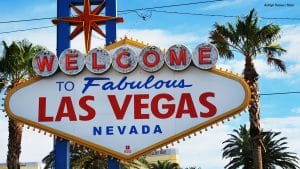
St. Louis is situated on the bank of the Mississippi River, which separates Missouri from the State of Illinois. The city has a population of slightly above 300 000 people and the metro area has a population of almost 3 million people.
The city was founded by the fur traders Auguste Chouteau and Pierre Laclède in 1764 and was named after the French king Louis IX.
During the years the city had its failures and its triumphs, and now it has evolved into a significant river port and business center home to a few Fortune 500 companies.
You may also like to read: How to Decide Where to Move. In this guide, we suggest things to take into consideration when deciding where to live next.
Get a clear picture of long-distance moving costs in just minutes!
Why Move to St. Louis?

St. Louis, Missouri, often referred to as the “Gateway to the West,” is a city rich in history, culture, and opportunity.
Whether you’re looking for affordability, vibrant city life, or a family-friendly environment, St. Louis has something for everyone.
Read on to find out why St. Louis is such a great place to live.
1. Affordable Cost of Living
St. Louis has a low cost of living compared to other major cities in the U.S.
Housing costs are significantly lower than in cities like Chicago or Los Angeles. According to recent data, the median home price in St. Louis is well below the national average.
In addition to housing, other expenses like transportation, groceries, and entertainment are also quite reasonable.
St. Louis offers a cost-effective lifestyle without sacrificing the amenities and conveniences of a larger city.
2. Rich Cultural and Recreational Opportunities
St. Louis is a city that knows how to entertain.
From world-class museums to professional sports teams, there’s always something exciting happening.
The city is home to the St. Louis Cardinals (MLB) and the St. Louis Blues (NHL), offering year-round sports excitement.
In addition, there’s Forest Park, a massive urban park that’s even larger than New York’s Central Park. Within its grounds, you’ll find the Saint Louis Art Museum, the Missouri History Museum, and the St. Louis Zoo—many of which offer free admission!
Music lovers will appreciate the city’s vibrant live music scene, especially its rich history of blues, jazz, and rock ‘n’ roll.
The city’s theater district and numerous festivals—such as the famous Taste of St. Louis—further add to the cultural vibrancy.
3. Family-Friendly Atmosphere
St. Louis is consistently ranked as one of the best cities in the U.S. for families.
The city offers top-notch schools, affordable housing in safe, suburban neighborhoods, and countless family-friendly attractions.
The Magic House, City Museum, and the St. Louis Science Center are just a few examples of places where families can spend quality time together.
In addition, the city has a strong sense of community, with many family-oriented festivals, farmer’s markets, and community events throughout the year
Climate
Missouri has a continental climate.
In winter, the dry-cold air masses from Canada are responsible for the reasonably humid air, snowfall, and rainfall.
In summer, moist, warm air masses, swing from the Gulf of Mexico and produce great amounts of rain. Spring and fall are transitional seasons.
In the summer, temperatures rise to 100° F, and in winter there is an average of about 110 days with temperatures below 32° F.
Some extreme climatic events such as high-intensity rains, ice storms, windstorms, and tornadoes occur once in a while.
You may also like to read: Where to Move to Avoid Climate Change. In this guide, we share the best places to live to avoid climate change.
Economy
The St. Louis metro area is said to account for about 45 percent of all the economic activity in Missouri.
St. Louis is home to some Fortune 500 companies – Express Scripts (health care and pharmacy), Emerson Electric (electronics), Centene (insurance), Peabody Energy (mining and crude oil production), and Ameren (gas and electric).
According to the U.S. Bureau of Economic Analysis, the St. Louis metro area has a Gross Domestic Product of $145.9 billion. The private sector industries that have contributed to the GDP the most are Manufacturing, Financial Services, and Education & Health Care.
As reported by Economy.com, some of the economy’s strengths are its highly diverse industrial structure, the favorable business and living costs, and the city’s strategic location near major highways and the Mississippi River.
Louis has one the lowest cost of living compared to other Midwest cities and 11.1 percent less than the U.S. average.
That low cost of living gives the city the highest “real” income of $47,610 compared to Kansas City ($45,802), Nashville ($45,582) and Indianapolis ($42,767).
You may also like to read: The Ultimate Guide to Relocating for a Job. If you are thinking of moving to St.Louis because of work then you will find this guide invaluable.








Share your thoughts by leaving a comment